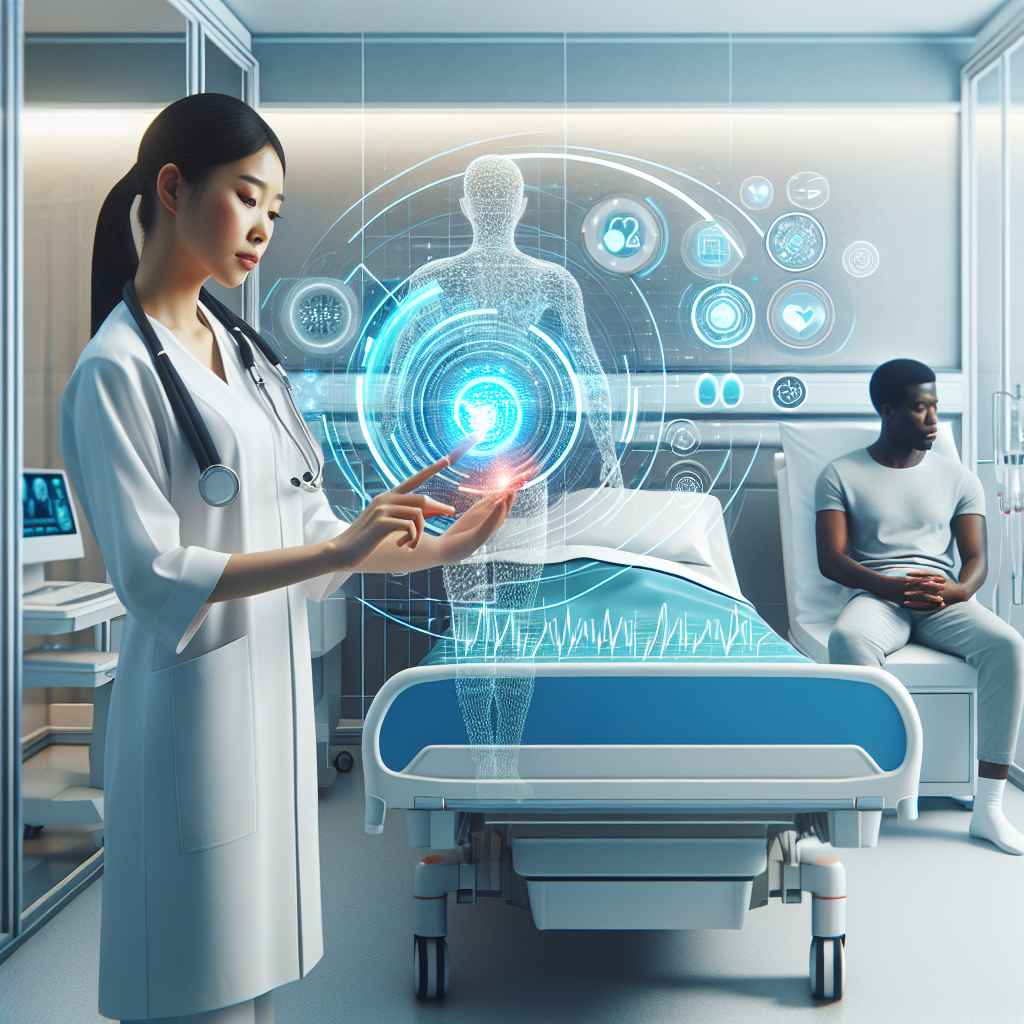The Benefits of Using AI in Healthcare
Artificial Intelligence (AI) has revolutionized many industries in recent years, and healthcare is no exception. The use of AI in healthcare has the potential to transform the way medical professionals diagnose, treat, and manage patient care. From streamlining administrative tasks to assisting in complex medical procedures, AI has the power to improve efficiency, accuracy, and overall patient outcomes. In this article, we will explore the various benefits of using AI in healthcare and how it is shaping the future of medicine.
1. Improved Diagnosis and Treatment
One of the most significant benefits of AI in healthcare is its ability to assist in the diagnosis of diseases and the development of treatment plans. AI algorithms can analyze vast amounts of patient data, including medical records, images, and genetic information, to identify patterns and trends that human doctors may overlook. This can lead to earlier and more accurate diagnoses, which can improve patient outcomes and reduce the risk of complications.
AI can also help personalize treatment plans for individual patients based on their unique medical history and genetic makeup. This can lead to more effective treatments and better outcomes for patients with complex medical conditions.
2. Increased Efficiency and Productivity
AI can automate many administrative tasks in healthcare, such as scheduling appointments, processing insurance claims, and managing patient records. This can free up medical professionals to focus on providing high-quality patient care and reduce the burden of paperwork and other time-consuming tasks.
AI can also help streamline workflows in healthcare facilities, allowing medical professionals to work more efficiently and see more patients in less time. This can improve access to care for patients and reduce waiting times for appointments and procedures.
3. Enhanced Patient Monitoring and Management
AI-powered devices and wearables can monitor patients’ vital signs and health metrics in real-time, allowing healthcare providers to track their progress and intervene quickly if any issues arise. This can be particularly beneficial for patients with chronic conditions who require ongoing monitoring and management.
AI can also analyze patient data to predict potential health risks and complications, allowing medical professionals to take proactive measures to prevent them. This can lead to better outcomes for patients and reduce the need for costly and invasive interventions.
4. Precision Medicine
AI has the potential to revolutionize the field of precision medicine, which aims to tailor medical treatments to individual patients based on their genetic makeup, lifestyle, and other factors. AI algorithms can analyze vast amounts of patient data to identify patterns and trends that can help medical professionals develop personalized treatment plans.
This can lead to more effective treatments with fewer side effects and better outcomes for patients. Precision medicine has the potential to revolutionize the way we treat diseases such as cancer, diabetes, and heart disease, leading to more targeted and personalized care for patients.
5. Drug Discovery and Development
AI can accelerate the drug discovery and development process by analyzing vast amounts of biological data to identify potential drug targets and predict how drugs will interact with the body. This can lead to the development of new drugs more quickly and cost-effectively, bringing much-needed treatments to market faster.
AI can also help identify existing drugs that may be repurposed for new uses, saving time and resources in the drug development process. This can lead to the discovery of new treatments for diseases that currently have limited options, improving outcomes for patients.
6. Remote Healthcare
AI-powered telemedicine platforms can connect patients with healthcare providers remotely, allowing them to receive care from the comfort of their own homes. This can be particularly beneficial for patients in rural or underserved areas who may have limited access to healthcare services.
Telemedicine can also reduce the burden on healthcare facilities by allowing patients to receive care without needing to visit a doctor’s office or hospital. This can improve access to care for patients and reduce the risk of exposure to infectious diseases, such as COVID-19.
Frequently Asked Questions (FAQs)
Q: Is AI in healthcare safe?
A: AI in healthcare is subject to strict regulations and guidelines to ensure patient safety and privacy. Medical professionals are trained to use AI tools safely and ethically to provide the best possible care for patients.
Q: Will AI replace human doctors?
A: AI is designed to assist human doctors in diagnosing and treating patients, not replace them. While AI can analyze vast amounts of data and identify patterns that human doctors may overlook, it lacks the empathy and critical thinking skills that human doctors possess.
Q: How can AI improve patient outcomes?
A: AI can improve patient outcomes by helping medical professionals diagnose diseases earlier and more accurately, develop personalized treatment plans, monitor patients’ progress in real-time, and predict potential health risks and complications.
Q: How is AI being used in drug discovery?
A: AI is being used in drug discovery to analyze vast amounts of biological data to identify potential drug targets, predict how drugs will interact with the body, and repurpose existing drugs for new uses. This can accelerate the drug development process and bring new treatments to market faster.
Q: What are the ethical considerations of using AI in healthcare?
A: Ethical considerations of using AI in healthcare include patient privacy and data security, bias in AI algorithms, accountability for AI decisions, and the potential for AI to replace human judgment. Medical professionals and policymakers are working to address these concerns and ensure that AI is used safely and ethically in healthcare.
In conclusion, the benefits of using AI in healthcare are vast and far-reaching, from improving diagnosis and treatment to increasing efficiency and productivity. AI has the potential to revolutionize the way we deliver healthcare services and improve patient outcomes. By harnessing the power of AI, medical professionals can provide better care for patients and advance the field of medicine in exciting new ways.

